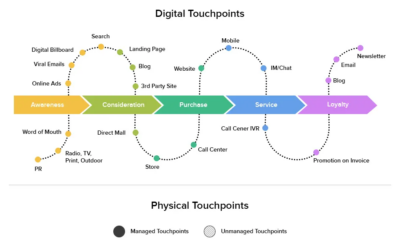The election has reached its halfway point, two weeks is all that remains until voters can head to polling stations around Australia (Sat 21 May) to cast their ballot.
The results determine not only the major party that’ll form the government in the next Parliament but also the next Prime Minister to lead the nation at a time of immense change. The COVID-19 pandemic and the climate crisis have both cast long shadows over businesses, and while some businesses may be cautiously optimistic, both parties responded with policies that propose measures for how your businesses can regain confidence and navigate a way to the so-called ‘COVID-normal’.
The major parties are promising…
Let’s take a look at what the major parties are promising, and how their policies may affect you and your business?
Sole Traders and Micro Businesses
Labor:
- promises to lift wages throughout the economy by boosting the number of workers with TAFE and university qualifications.
Liberal National Coalition:
- the tax offset is said to remain at 16% for unincorporated businesses with a turnover of less than $5M (capped at $1,000) to ensure sole traders also benefit
- the small business tax offset was increased from 13% in 2020.
Despite small businesses being at the forefront of election discussions, neither of the major parties have outlined new policy positions that will assist business owners other than support associated with returning to pre-pandemic (or in reality COVID normal) conditions . It may look like they have fallen back on existing policy measures and commitments from earlier.
Small and Medium Businesses
Small and medium businesses have taken the spotlight, with both parties proposing regulation reforms that cut red tape at tax time for businesses, pledging to be ‘pro business, pro employer’.
Labor:
Labor’s Better Deal for Small Businesses proposes a number of measures:
- greater accessibility to crisis support available for small businesses
- the payment of invoices to small businesses to be paid in 30 days (not the current 37)
- reducing transaction costs / merchant fees through ‘least cost routing’, as “small businesses are disproportionately impacted by higher transaction fees that eat into profits – around $804 million a year” says Labor
- simplifying the tax process for small businesses, as “8 out of 10 small businesses find government regulation overly complex”
- maximising small business participation in Commonwealth procurement, and
- providing an environment for businesses to thrive in, through measures such as; Labor’s ‘StartUp Year‘ initiative and Fee-free TAFE to address the skills shortage and more University places.

Liberal National Coalition:
The Morrison-Joyce government has announced the ‘small business technology investment boost’ and ‘small business skills and training boost’ which offer Businesses with a turnover of less than $50M, access to a 20% bonus tax reduction on:
- the cost for external training for employees, however this deduction does not extend to sole business traders
- investing in new technology that is capped at $100K per year (includes cloud based services, e-Invoicing, cyber security and web design).
The Supporting Small Business policy plan has seen the Coalition announce further measures to improve conditions for small businesses, these are:
- small business tax relief: a lower tax guarantee promises no new taxes on Australian workers or small business, whilst the corporate tax rate for businesses with a turnover of less than $50M remains at 25%
- red tape relief: the Coalition announced it wants to cut red tape for businesses, individuals and community groups (to generate benefits – deregulation reforms – exceeding $21B over 10 years) and said it has already delivered with it’s Simpler BAS for simplified Business Activity Statements and implementation of Single Touch Payroll (both through the ATO) but will now ‘automate ATO reporting requirements’ to reduce compliance costs, improve processing times and support cash flow for small businesses. The Coalition has already delivered the Online Hiring Employees Checklist and Employment Contract Tool that makes it easier for businesses to employ their first worker.
- helping cash flow: lowering the GDP uplift rate that applies to pay-as-you-go (PAYG) instalments and GST instalments from 10% down to 2%.
A plan for More Australian Jobs, with the ‘Backing Australian Apprentices’ measure, the Coalition will see that trade apprentices are backed:
- new apprentices will receive $5K payments
- businesses that take on new apprentices will receive wage subsidies of up to $15K.
Big business and enterprise
For big business and enterprise, the focus of Coalition policy incentives has been on cost savings and regional growth, the measures include:
- the Plan to Lower Taxes, under this plan the Morrison government will expand the ‘Instant Asset Write Off’ where “over 99% of businesses” are able to write off the full value of any eligible asset they purchase for their business until 30 June 2023, the measure is *available for small, medium and large businesses with a turnover of up to $5B
- a pledge to boost regional jobs, with the creation of 450K new jobs over 5 years, with job creation set to occur in the sectors of energy security, innovation and telecommunications – marked for investment under the Energy Security Regional Development Plan, the Regional Accelerator Program, and Regional Telecommunications
- a labour-hire licensing scheme for the horticulture, cleaning, security and meat processing sectors
- a pledge of $6M to support a range of major agriculture events.
*If re-elected, the Coalition will not extend the Instant Asset Write Off, meaning the incentive will end in June 2023.
Bipartisan commitment to combating Multinationals tax avoidance
Labor:
- A Labor government will crack down on hundreds of businesses using offshore tax havens to dodge corporate tax, while also preventing firms with links to offshore tax havens from winning government contracts. If elected, Labor will see that debt related deductions by multinationals will be limited at 30% of profits, this follows the review of global tax rules led by the Organisation for Economic Cooperation and Development (OECD). Labor would also maintain the worldwide tax gearing ratio and the “arm’s length” test
Liberal National Coalition:
- A Coalition government will extend funding the Australian Tax Office’s ‘Tax Avoidance Taskforce’ and will remain signed on to the two-pillar OECD rewrite of global tax rules which, if secured, would ensure a global minimum 15% tax for companies with a global turnover of more than $1.1B.
Whatever a business’s size, both the major parties have offered policies listed with a range of incentives and carrots designed to attract your individual vote.
The plans of each of the major parties are aimed both at easing the cost of doing business and increasing accountability, these measures have been framed as opportunities for businesses, large or small. And after a horror couple of years for most businesses, the measures are likely to be welcome. But are they enough to emerge from the long shadow of the COVID-19 pandemic and a decade of inaction on the climate crisis? As the power lies with you and how you’ll vote, perhaps we’ll only discover that after the election.
Voting in the 2022 Election
Check out the Australian Electoral Commission (AEC) How to Make Your Vote Count. The AEC also has information on COVID-19 safety measures for polling day.



